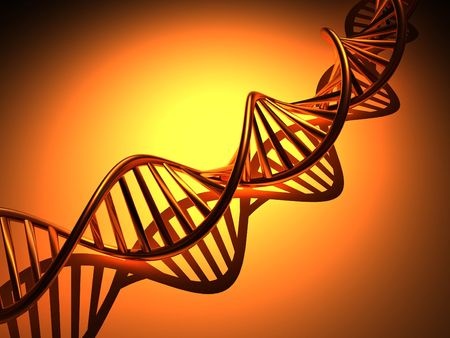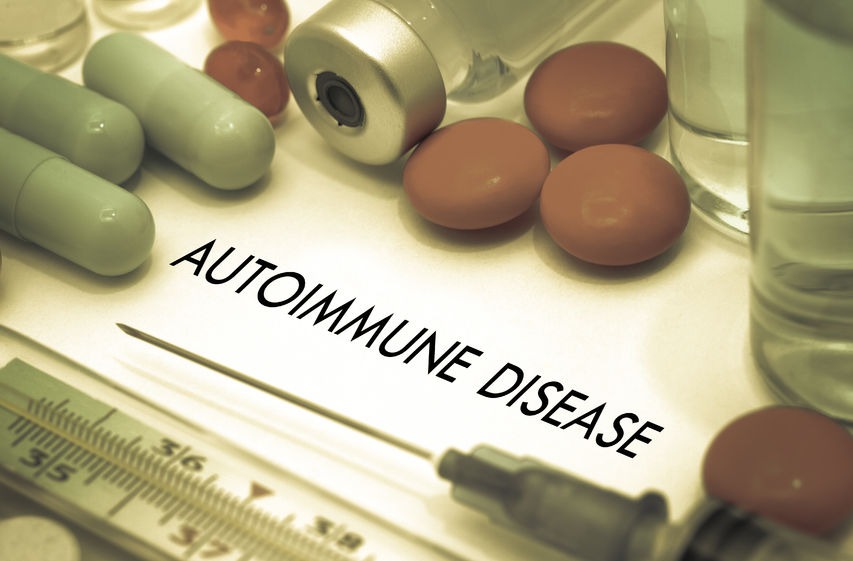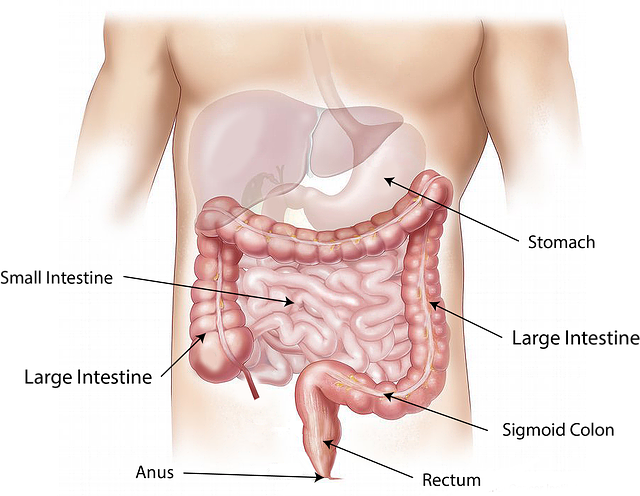Is Celiac Disease Genetic?
 DNA Structure
DNA StructureIs celiac disease genetic? In a word, yes.
According to ImmusanT Inc., “About half the population is genetically susceptible to celiac disease because they carry the immune response genes HLA-DQ2 or HLA-DQ8. At least one in 20 people who carry HLA-DQ2 and about one in 150 who have HLA-DQ8 develop celiac disease, but people with other versions of the HLA-DQ genes are protected.” (1)
In addition to conveying less risk, the HLA-DQ8 celiac gene is much less common than the HLA-DQ2 gene. In fact, 95% of patients with celiac disease express HLA-DQ2 (referred to as being “HLA-DQ2 positive”). The remaining patients are usually HLA-DQ8 positive.
In his book Gluten Freedom, Alessio Fasano, MD, states that 2 to 3% of people with celiac disease don't have either celiac gene.
For more information about the two celiac genes, see What Is the Celiac Gene?.
FYI: ImmusanT Inc. (the source of the quotation in the second paragraph) is a biotechnology company focused on restoring tolerance to gluten in people with celiac disease. For self-serving reasons and for the benefit of all celiacs, I support this company's mission!
Celiac Disease Genetics in My Family
I have two copies of the celiac gene HLA-DQ2, which means I inherited the same gene from both of my parents. I don't know if I actually succumbed to celiac disease because I went gluten free before knowing that I should be tested for it.
All of my celiac disease testing has come after I went gluten free. And all of my results have been normal. It is unknown if I am in remission from celiac disease or if I prevented it from developing by giving up gluten.
My second gastroenterologist tested me for the presence of the two celiac genes. In his letter explaining my homozygous status with HLA-DQ2 (referring to me as being “HLA DQ2/DQ2 positive”), he recommended that all of my first-degree relatives get tested for celiac disease.
I passed along this recommendation to my family. For me, this meant my three sisters, as both of my parents have already died, and I don't have children.
As far as I know, not one of my sisters has gotten tested. This distresses me, but I have no control over other people's decisions.
Though my risk for this disease is especially high (due to having two copies of the dreaded gene), only one copy of the gene is required for the development of this disease. Given that both of my parents carried at least one copy of the gene, it is highly likely that one or more of my sisters also carries this gene.
In fact, statistically speaking, my sisters have the same odds as I do of carrying two copies of this gene. As a medical doctor in New Zealand once pointed out to me, conception has no memory from one child to the next.
What About My Parents?
Did either or both of my parents have celiac disease? They were never tested for it, so I will never know. But I do have my suspicions.
My father was plagued with constipation and took something every day to keep his bowels moving. As a teenager, he required surgery for an intestinal blockage, the cause of which was never determined.
He also had a lot of belly fat. No matter what he did, it wouldn't diminish. And he wasn't a beer drinker or a big eater. He exercised religiously (for decades, heart disease was his major health concern) and did all he knew at the time to take good care of himself, including eating “right,” which meant eating grains.
Even as my father was dying of kidney cancer at age 71, he lost weight, as many cancer patients do. As a consequence, he developed what he called “bird legs” while his belly remained distended.
As for my mother, she had terrible gas for as long as I can remember. She also had diverticulosis, but I am unaware of any connection of this disorder to celiac disease. Whatever the cause of her gas, her digestion was obviously impaired. She died of emphysema after chain-smoking from age 19 until her death at 68.
Here is a stunning example of how celiac disease genetics have played out in one family.
One of the gastroenterologists I consulted with is an expert in celiac disease and non-celiac gluten sensitivity (commonly shortened to “gluten sensitivity”)—and not just because he is a GI doctor. He himself has gluten sensitivity, and his two ex-wives have celiac disease!
On top of that, he has five or six adult children, and all of them—except one—have been diagnosed with either celiac disease or gluten sensitivity. The lone child who doesn't have either diagnosis has decided he doesn't want to know, one way or the other. As my doctor told me that this son continues to consume gluten, a grimace flashed across his face.
Why do we sometimes listen the least to those closest to us who know the most?
Are Other Genes Related to Celiac Disease Genetics?
Yes. According to Dr. Fasano, we now know of about 40 genes that add to the growing pieces of the “celiac disease genetic puzzle.”
In fact, Dr. Fasano states, “Non-HLA genes contribute more to the [celiac disease] genetic background than do the HLA genes, but each adds only a modest contribution to disease development.” (2)
Collectively, these genes influence various aspects of immune regulation and intestinal permeability, as well as one's general predisposition to autoimmunity.
I can see myself going down a rabbit hole trying to further tease out my celiac disease genetics. Might the results from my 23andme genetic testing in 2014 reveal data about these other genes? If so, maybe I could learn more about the likelihood of whether I actually have celiac disease.
If I decide to venture down that rabbit hole, I'll share my findings on this site after I come up for fresh air and take a shower.
References
1. Link Between Gluten and Immune Reaction Revealed for HLA-DQ8 Celiac Disease. ImmusanT Inc. press release. Oct 11, 2012. [PDF]
2. Fasano A. Genetics of Celiac Disease. Medscape Drugs & Diseases. Aug 24, 2014. [Article]
CeliacFAQ.com home page > Celiac Disease FAQ > Is Celiac Disease Genetic?


